i graduated high school in May 2008 with plans to become a rock star.
the first song i ever wrote (warning: screamo) got some radio play and my band was performing all over the state of Georgia.
then reality kicked in.
my bandmates started doing drugs, stole thousands worth of my gear to buy more drugs, failed to pitch in for our tour van, and i was the “responsible one” keeping everything together.
the band split.
without a purpose
my “smart” friends started college. they were concerned about my future, perhaps talking behind my back. and for good reason: i was lost.
“join the military” i thought. let’s kill people!
so i visited a nearby Marine Corp recruiting office. they sold me on a lifestyle of travel, adventure, saving cash, and racking up vacation days. where do i sign up?
i trained with my recruiter a few times, mostly pushups and 2-mile runs. they sent me downtown (Atlanta) and i scored 97/99 on the ASVAB. this is a standardized test that determines the type of jobs for which you’re eligible.
score high, do something like “intelligence.” score low, infantry. you can score high and enlist down if you prefer to be in the fight, but you can’t claim a job above your score.
anyway, i chose MOS 2673, aka operation North Korea. in 24 months i’d learn Korean, get a cash bonus, then gain security clearances as my career advanced.
all of my interests in video games, computers, how things work, music, creativity, and performance, vanished. this was the cost of securing a role that pays about $8 per hour as a private first class.
parents get in the way
i told my parents about my decision.
we weren’t really speaking at the time. i was living alone in my girlfriend’s house, making gold teeth for her uncle, mowing yards, and teaching kids to play guitar.
my parents pleaded with me, “don’t join the military.” they support the armed forces generally, but not that much i guess.
they offered to help pay my college tuition if i applied to school instead.
applying to college
i took “gifted” and AP classes ever since i was 10 but scored average at best. school was never my jam and that’s all i have to say about that.
this made my high school transcripts — a key piece of evidence for college admissions — a bit strange.
on one hand i earned an “A” in AP Physics. on the other hand i took Discrete Math (essentially algebra) during my senior year. on one hand i was first chair in orchestra. on the other hand i had been suspended a couple times.
i applied to a few state schools and was rejected. i got accepted to community college.
pride, wanting a challenge, whatever it was, i was not OK attending community college. my girlfriend at the time was valedictorian, now at Harvard. was i that dumb?
i prepared an appeal. in my package was a personal essay, a CD-rom with my band’s music, my ASVAB report card, and a letter of recommendation from my long time orchestra teacher.
a few weeks later, Georgia State University accepted me on probationary status. i never figured out what this meant, but it remained hard-coded in my student portal for my entire college career.
commuting and finding myself
i moved in with my grandfather, who lived about an hour and 15 minutes from school with traffic.
after class i went home, ate a ham sandwich and Little Debbie cake in bed, watched reruns of the Beijing olympics, and wrote music.
i got a full time job at Lowe’s Home Improvement in the lawn and garden department. i saved a couple thousand dollars for studio time and in April 2009 released my first solo album, Forgive Me Gorgeous.
to this day, fans tell me FMG is my best work. i’ve recorded 5 albums since:
class began at 9am, so i left by 7:30a and went downtown 5 days a week. i took extra courses during my first 3 semesters (spring, Maymester, summer) to catch up with my peers from high school.
Georgia State used the “plus/minus” system at the time, which meant a 97 or above in a class was recognized beyond “A” status. by the time i finished my first 30 credit hours my GPA was 4.3 on a 4 point scale.
i applied for Georgia’s HOPE scholarship, which pays most of the tuition (minus student fees) for state schools in exchange for an above-80 grade average.
this saved my parents some serious cash, and they agreed to reallocate it towards rent at an apartment in the city to spare me the commute.
we weren’t totally balling out so i needed a roommate. i had the perfect guy in mind… let’s call him Bill. we met in an intro to communications class and hit it off, even though he’s a flaming liberal.
we picked an apartment and moved in the day before my sophomore year began, August 2009.
roommate problems
Bill was a smart, funny dude, but also a pot head and spoiled brat.
his parents were “loaded” (2009 terminology) and had recently moved away from Georgia for his dad’s new CEO role at a company on the west coast.
for a few months everything was OK. small stuff like “dude clean your dishes” cropped up here and there, but overall we had a good time, hung out, and introduced each other to mutual friends.
then it got weird. his druggie friends were crashing too often, using my bathroom (we each had our own), and trashing the living room on a daily basis.
empty pizza boxes, sink full of pots and pasta noodles (munchies diet), debris all over the floor from their weed grinders. it was a mess.
i took the low road. or high road, i’m not sure. i got passive aggressive.
roommate retaliation
our apartment was a “double master” in Buckhead, a fancy neighborhood outside downtown Atlanta. we each had our own bathroom, but Bill’s was in his room, while mine was also accessible from the hallway.
to curb the druggie-friends-taking-dumps issue, i installed key locks on my bedroom and bathroom doors. yes, i literally used a key to pee.
next i started making threats about our kitchen hygiene. the pots, pans, and silverware were all mine, and if he didn’t clean up after himself, i would get rid of them.
unfortunately for Bill, he thought i was bluffing. i packed up the pots, pans, and silverware. our kitchen was now bare. Bill bought a couple packs of disposable forks, red cups, and white paper plates and was back in business.
finally i unleashed the mega load. i asked his friends to stop crashing on the couch. by this point multiple people were sleeping over 4x+ /week and drinking, smoking, basically partying all night. a few times i skipped school in the morning because i was too tired from the previous night’s noise.
the living room, just like the kitchen, had exclusively my stuff. so while Bill was gone one day my parents and friends helped me pack up the television, couch, and coffee table. we stored it at my grandfather’s house and when Bill came home he thought we’d been robbed.
once Bill realized all this was my handiwork, we were at war.
money problems
our apartment had an online portal for paying things like rent, trash, and the water bill. for some reason my parents were hooked up as the official, liable party.
i think because Bill’s parents moved way, they weren’t available to sign the lease papers in person, so my parents bore the risk. after all, Bill’s parents are loaded. what could go wrong?
well, Bill decided to withhold his half of the rent following Operation: Clear Living Room.
to make matters worse, my dad had recently lost his job. floating more cash, just to pay rent for a spoiled kid who was intentionally being a jerk, was a low point.
so while i take full responsibility for what happened next, i was under pressure from my family to even the scales and get back what was ours.
the Buckhead heist
by the 6th month of our 12 month lease it was obvious this was not going to be a renewal situation.
i found a 3 bedroom house in East Atlanta that was around $300 cheaper per bedroom than my current apartment. i moved in with 2 friends in July 2010 and all that was left in the apartment were miscellaneous items like a soap dispenser and junk in my closet.
in early August 2010, about 1 week before the last day of our lease, i returned to the apartment to pick up these items and inspect the unit for damages.
my roommate had scribbled vile graphics and curse words all over the walls in his bedroom with black Sharpie markers. heavily used glass bongs were everywhere.
while going through kitchen drawers i found a $100 bill.
surrounded by more drug paraphernalia, i knew it wasn’t mine. so i shrugged, closed the drawer, and left.
but in the parking lot a thought occurred to me… could i use this as leverage to get Bill to pay us back for missed rent checks?
i figured $100 cash was important to him, and swiping his parent’s credit card on the online payment portal was nothing.
so i text Bill, “hey, i found a $100 bill at the apartment. let me know if it’s yours.“
at this point in my life i wasn’t too savvy about leaving paper trails, persuasion, negotiation, or any of that stuff. but i also wasn’t an idiot.
saying “i found” was my way of CYA (cover your ass) in case this got ugly. it did.
the swap
within a few minutes Bill texted back. he said it was his friend’s money, not his, and that i better return it “or else.”
i said sure, and can he also pay back the 2-3 months worth of rent and utility bills he had neglected.
Bill said OK.
we agreed to meet back at the apartment, in the community clubhouse which was open 24/7 via resident keycard.
i intentionally requested this spot because i knew the clubhouse had cameras. if we met somewhere else, his druggie friends might be more aggressive.
around 9p i drive back to the apartment, coming directly from Waffle House with my girlfriend in tow, to give Bill back his $100 bill. the plan was to watch him — from his phone — connect to the pavilion WiFi and pay me back for missed rent.
well, when i walked inside the club house there were 2 Atlanta Police Officers.
they’re looking pretty tense, maybe a mixture of annoyed and already upset with me. “well hello officers!” i say boldly. i’ve always been sort of a smart ass.
they asked me to tell them what happened. i recalled our text exchange, that i found money and that Bill also happened to owe me money. i was here to give it back to him.
Bill was standing there, a giddy look on his face, as one of the officers said “do you believe the lies you’re telling us right now?“
before i could respond, the other officer threw me against the wall and cuffed me, hands behind my back. this was not going down as i expected.
back of a cruiser
i’ve always performed pretty well under pressure. within seconds of being cuffed i started barking commands at my girlfriend:
“take my phone out of my right pocket, my wallet out of my back pocket. take my keys, left pocket so you can drive home. call my parents and give them a heads up so they can bail me out.”
i knew i was being arrested, and i knew i was going to jail.
before pulling away the cops were kind enough(?) to crack open my back window and allow me to appeal to Bill about his decision to press charges.
if he let everything go in that moment, they would have let me out of the back seat and it would have been like nothing ever happened.
“Bill, you don’t need to do this. you can keep the extra rent money. what will me having a record do to help you?“
even though i was in a bad situation, i still refused to grovel, to beg. i have too much pride for that and besides, the worst thing that could happen is i never get hired at a real job.
“hmm, let me think about it” says Bill. he calls who i later found out was an attorney, for advice. “no, he needs to pay for this” Bill says to the police officers. we drive away.
police station
we drive to a nearby police station and i’m taken inside, then cuffed around all 4’s (both feet, both hands) to a hook cemented into the ground, beneath a chair.
the office i’m in is small, and a female officer walks in with a couple of forms and a pen.
within seconds we recognize each other… she had just been on the scene of my car accident a few days prior, when a mom accidentally hit my back bumper.
i advised the mom to follow me off the side of the road, since we were on the highway, and this cop was not happy i intentionally “left the scene of the accident.”
she (the cop) cracked some joke like “you again” and my heart sunk. could this get any worse?
after answering some basic questions i was put back into the cruiser, this time a different cop was driving. we were headed to jail.
jail
we pulled up to Fulton County Jail in west Atlanta around 11:30pm.
the car specifically parked in a “car port,” and after pulling in the metal garage doors around us closed. it was a Hannibal Lecter style unloading, where we entered a surrounded-on-4-sides compound before they opened the car door.
i got out and they unlocked my cuffs. they checked my pockets, now clear of everything except a single peppermint candy i picked up at the register of Waffle House, just minutes before meeting Bill at the apartment club house.
getting booked at jail is a lot like renewing your license at the DMV. you pick a number, sit in an uncomfortable plastic chair bolted to the floor, and watch screens hanging from the ceiling as they shuffle the queue of future inmates.
in case it’s not obvious, the midnight crowd on Friday night in a west Atlanta jail waiting area is not exactly “poppin.”
a big guy leaned over and said, “what did you do? why you in here?”
not wanting to get raped i said something like, “oh you know, some BS with my roommate.” cue my legs spreading to take up more space. lobster tactics.
“did you punch him in the face?” he asked. “yeah, something like that…” i said. sharing “i found a $100 dollar bill” would probably not bode well for me.
my number was called a few minutes later and i walked up to a bulletproof window with a hole in the middle. they confirmed my identity and allowed entry behind the stall, where my mugshot was taken.
later i paid > $100 to various websites that save down mug shots and then extort people to remove them.
the cell
it’s worth mentioning the jail was around 55 degrees Fahrenheit.
i was wearing a brown collared Polo t-shirt (don’t judge), brown faux leather flip flops, and a pair of khaki shorts. you know, the kind that end just above the knees.
they put me in a 2-person cell with around 15 other grown men. most of us sat against the wall, knees close to our chest, to maintain body heat.
a couple gangbanger looking guys were cuddling and one guy, passed out, was laying face first in a puddle of piss next to the toilet. yep, one of those open toilets. if i had to go it would have been in front of some unhappy dudes.
while i sat there, contemplating the decisions i made that night, my left hand was in my pocket, rotating my mint peppermint candy from Waffle House. “when i get out of here, i’ll eat this mint.”
the phone call
it’s true what they say: you get 1 phone call.
i knew my parents’ landline by heart because it was the same number since elementary school. i dialed, not sure exactly what to say or if they would even answer, at around 1am.
“hey Ryan – how are you doing? we know everything, Bill is on the way to bail you out.“
this was a relief. i was anticipating the “you’re grounded for life” kind of spiel you see in the movies. turns out my girlfriend laid the groundwork so that wasn’t necessary.
here’s what happened, which i didn’t find out until later:
- my girlfriend took my phone at the apartment and tried dialing “House” or “Home,” neither contact was saved (just “mom” and “dad”)
- she then called my friend, who was suspended from college at the time and living just a couple miles from my parents in the suburbs
- he drove to my parents house and started throwing rocks at their bedroom window. much later i found out he was high at the time
- my parents opened the door and he had just information to get them to call my girlfriend and figure out the rest
- they searched emails and found an old thread from me and Bill’s “let’s move in together” honeymoon phase with Bill’s parent’s CC’d
- my parents got in touch with Bill’s parents, who were still awake because they were 3 hours behind us on the west coast
- they promptly got in touch with Bill and demanded he “fix this”
this might have been the most productive phone call of the evening at Fulton County Jail. i was elated, and ready to get out of there.
the arraignment
there was no “sleeping” in a should to shoulder jail cell surrounded by criminals. my spirits were pretty high but nonetheless it was exhausting to watch the minutes go by until 6:30a the next morning, Saturday.
the prison guards put us back in 4×4 shackles and we marched single file to a court room, down the middle past the pews and into a back room holding area with more guards.
one by one, each arrested prison mate was shuffled into the court room in front of us for their arraignment by a video conference judge.
yes, the judge was live streaming from somewhere else, otherwise wearing the usual garb and sitting in what looked like a court room. a few families and lawyers were sitting in each of the pews as well.
when it was my turn the judge began to read the charges: “petty theft” and something else. around that moment my ex-roommate, Bill, walked into the courtroom and said:
“i’m sorry your honor, this was all a mistake, a misunderstanding. please excuse this case. i will not press charges.“
this was my lucky day! my parents aren’t mad, my roommate is reversing the allegation, and i’m about to go home.
wrong.
release papers
the judge struck his gavel and said “case dismissed.”
i naively turned to a nearby prison guard, lifting up the shackles and chains binding my wrists and ankles as if to say “you can unlock these now.”
“back in the cage!” they said. i walked back into the holding cell behind the court room.
around 30 minutes later a group of us were shuttled down another hallway into yet another cell. this was not a normal prison cell, it was really just a room, maybe 14 x 14 feet , no toilet or bed.
i got to know some of the other prisoners. one guy was driving his wife’s car, and a tail light was out. they pulled him over and since he had outstanding parking tickets, he was arrested. (i’m not really sure if any of this is true)
another guy had been arrested for the ~30th time for being drunk in public. he basically seemed homeless. he knew prison guards by name and seemed pretty knowledgeable about the system.
it was this guy who told me that although my case had been dismissed, i might not be released for another 1-3 days.
according to him there was a fair bit of paperwork required to let someone out, and that the shift changes around 2 or 3p. if a guard or admin didn’t “get around” to my paperwork by that time, it would likely be another full day before my release, as the evening shift guards don’t handle releases.
uh-oh.
not only was it difficult to even fathom another 24 hours in jail, but it also felt cosmically wrong as my case had been dismissed. also to be honest, i had tickets to see the Atlanta Falcons that night and i had every intention of making it to the game.
hours pass
i can’t recall if there was a big analog clock somewhere, or if someone was wearing a wrist watch, but somehow i knew that 3p had passed.
will i not be let out until tomorrow? seriously?
it was this realization that led me to my first and only mental breakdown in my entire life.
i started banging as hard as i could on the huge metal door, the kind that slides open based on a switch somewhere else in the facility. “stop that!” said an inmate in my cell. “they’ll beat you or add more charges!“
i didn’t care. this was evil treatment.
“shut up!” they yelled from down the hall. “i’m supposed to be out of here — my case weas dismissed” i yelled back.
silence. i stopped pounding.
a few long seconds later, “what’s your last name?” came crashing down the cinder block hallway. “KULP” i said.
BZZZZZZ! “open on Cell __.”
i walked out into the hallway. the other inmates were dumbfounded. i didn’t see anyone, but there was what looked like a window, a cut-out in the cinder blocks, about 20 feet ahead.
the woman behind the counter asked my full name, then gave me a subway card with enough credit on it for a 1-way ride anywhere MARTA would take me.
a few feet further was a regular swinging door, and once i walked through it i was in an ordinary waiting room, like a dentist office. a few families, husbands, wives just hanging out in. chairs, and a reception desk in the corner.
i stepped outside. so much warmer. i walked through the empty parking lot and towards the treeline, which ran parallel with the subway stations.
i saw Bankhead station up ahead. instead of going toward the entrance i ran into the trees, right up to the train tracks. i jogged along these tracks about a quarter mile, in my flip flops, until i got to the official station platform. i jumped up.
my new house was in East Atlanta, just off the Edgewood-Candler Park station.
i took the MARTA’s green line east bound and didn’t have to use my free token. can’t remember what i did with it.
30 minutes later i knocked on my own front door. i was lucky my girlfriend was home, as i had given her my keys (car + house) the night before outside my apartment build.
i called my parents. they drove downtown and we made it to the Atlanta Falcons game on time. i finally enjoyed my peppermint candy from Waffle House.
immediate aftermath
my ex-roommate Bill was unenrolled from school by his parents.
they also took away his nice car and “cut him off” in some other ways too, e.g. rich kid allowance. i kind of felt bad for him.
over the next couple years i saw him around town a few times, riding his bike and loitering in Little 5 Points, a great neighborhood for pot heads.
once i even got off a flight at the Atlanta airport, and he was standing at the top of the exit escalators waiting for another friend.
our eyes locked, i approached him, and we hugged. i forgave Bill for everything, and that’s why i haven’t used his real name in this post.
ATL
the arrest happened in 2010 and was just the first incident in a string of “happenings” i experienced while living in Atlanta for 4 years.
a few other fun things:
- my car was stolen
- my scooter (moped) was stolen
- a crack head climbed through our house’s window, took my Xbox, then pointed my girlfriend’s pink BB gun at my roommate’s face while he slowly backed out of the front door
but it wasn’t all bad.
one time i was working at a club for rapper T.I.’s birthday party, collecting money from bottle girls and counting it in the back with my friend Jonny while Atlanta police officers watched.
all the money was soaked in liquor, so automatic counting machines were useless. i recall counting at least $80,000 cash that night.
when i got home i learned that a crack head had just stolen my Xbox. i didn’t even bother calling the cops.
so you know, typical Atlanta lifestyle. maybe someday i’ll share more of those stories on this blog.
fast forward
in May 2012 i graduated on time with my friends from high school.
i’m probably being generous calling them “friends.” most went to fancier institutions and had elite internships lined up by now: White House. Legal Clerk. some UN related thing in Africa.
no, they weren’t interested in hanging out with State School Ryan who couldn’t hack an entry level job. so i got new friends.
i started talking to random people at my apartment complex. at the pool, on the roof, in the common areas. like this wedding photographer, Zack, who was dating another tenant who was a wellness entrepreneur.
there was Rick, a retired gay dude who always had a dozen young straight men hanging around in exchange for free cocaine. and then the usual suspects, internet entrepreneurs and remote workers.
these became my new friends, the weekday drinking buddy types.
in just a few years i had abandoned my music dreams, gone through my first real heart break with a high school sweetheart, picked up dozens of gigs, started 2 small companies, and graduated college.
it was time to get a job.
the paradox of experience
my resume was filled with impressive brands like Red Bull, Microsoft, and Teach for America, but i didn’t have a network and i wasn’t sure what i should do.
thinking back to my interests in Korea, both the language and the culture, i applied to teach English in Busan.
for context, at Georgia State i took 2 years of the language and enjoyed it. my girlfriend at the time was Korean. and while “teach English in a foreign country” is increasingly cliche, i was looking for adventure.
after a few phone calls and emails, i got the job. they just needed my fingerprints for a background check.
the past stays with you
i hadn’t thought much about my arrest, which my family and close friends were still referring to internally as “my stay at the weird hotel.”
after all, my case was dismissed. Bill was punished — perhaps more than fits the crime — and my parents eventually got their money back.
but now, suddenly, this arrest was everything.
after getting my finger prints done at a police annex, the results came back: around 9 pages in a criminal record for my dismissed case of petty theft.
my recruiter for the Korean gig was not pleased, and essentially told me i had a few days to make it disappear or the job opportunity was gone.
a few days passed, no more job.
Ray Donovan
a bit of research revealed that i needed expungement.
this is a perk for first-time offenders that basically wipes your criminal record as if it never happened.
in the USA you’re only required to disclose to employers that you’ve been convicted of a crime (not charged), but a simple $40 background check would continue to haunt me even if that question was never asked.
in other words, i needed this arrest from 2010 to go away so i could get a job.
since i was broke, hiring an attorney was out of the question. so i carefully read through myriad government websites, filed my own papers, and got my record expunged a few months later.
doing this on my own is one of my proudest accomplishments. building profitable SaaS apps is “meh.”
restarting my job search
my experience as a 22 year old job seeker is common at best.
i applied to many places, heard back from a fraction (single digit), had a few interviews, and zero callbacks.
the closest i got to a “job” was becoming a financial advisor, aka pimping out your entire friends and family network to sell life insurance on commission.
throughout this job search process i was working, by the way, just not in a career-oriented role. i was doing random PR stunts and brand activations for 30-50 hours per week, mostly weekends, making $10-25 per hour pending the vendor.
a few highlights:
- giving away Sunchips at an Auburn football game
- played ping pong with olympians at Coca Cola headquarters
- stopped people on the street next to Hooters to show off translation features for the new Microsoft smartphone
- delivering strawberry Dove deodorant samples to sorority houses
- ripped my dress pants in the crotch while making a joke about Justin Timberlake in front of a bunch of Samsung executives
- running contests for a Paul Frank tour bus
- manual labor for the Chick-Fil-A Peach Bowl
these gigs paid just enough for me to bum around at my loft apartment off Carrol street with my eclectic neighbors. you know, the kind who come inside without knocking first and go straight to the mini bar.
a few months into it, i was sick of the hustle.
the thing is, i am a hustler. but this lifestyle was not on my own terms. it was a never-ending race of replying to emails as quickly as possible to get “picked” for the next event marketing gig.
and even this line of work was not immune to my 2010 arrest.
in summer 2012 i was rejected from a high paying Disney gig because they, too, wanted fingerprints and a background check. understandable, but dang.
a criminal record is a plague that turns men into lepers.
choosing myself
the title of this section is a nod to James Altucher, whose book by the same name reminded me a year later that everything i did next was Right.
in late Summer 2012 i decided to stop applying to gigs; to stop hoping someone would “pick” me. i decided i had enough skill, energy, and aptitude to add value to a real company, today.
i raised $1,511 on Kickstarter to self-publish Professionalism in Flip Flops.
in case you’re wondering, the book is a piece of crap.
but i shipped it anyway. and it opened doors. i published PIFL the day after Thanksgiving, 2012 and 30 days later i had a full-time job in New York City at a tech startup.
method or madness
now 29 years old, my 7 year career in technology is evidence enough that i’m “good” at building software.
this discipline isn’t as fun or psychologically rewarding as my true passion, performing, but it does pay really well. and i’m carefully plotting my return.
for 13 years i’ve been writing, recording, and playing shows around the country until my output matches my taste. my next mediocre EP, Juvenile, debuts in a couple weeks.
when my art gets better i’ll pivot back to full-time musician and detonate my tech career, which was always a means to an end.
(i tried this in 2017, moving to LA for 6 weeks to improve my production chops, but i need more time. the results weren’t good)
jail and the butterfly effect
finally, the punch line of this story.
none of this — achievements > disposable income > ability to invest in my art — would be possible if i hadn’t been arrested on a Friday night in August 2010.
i would have moved to Korea for 2+ years to teach English, then… i don’t know.
it’s a fool’s errand to predict the future. but i can state with some certainty what would not have happened: i would not have achieved my potential.
thanks Bill for being a dick roommate. you saved my life.
The post going to jail saved my life appeared first on Ryan Kulp.











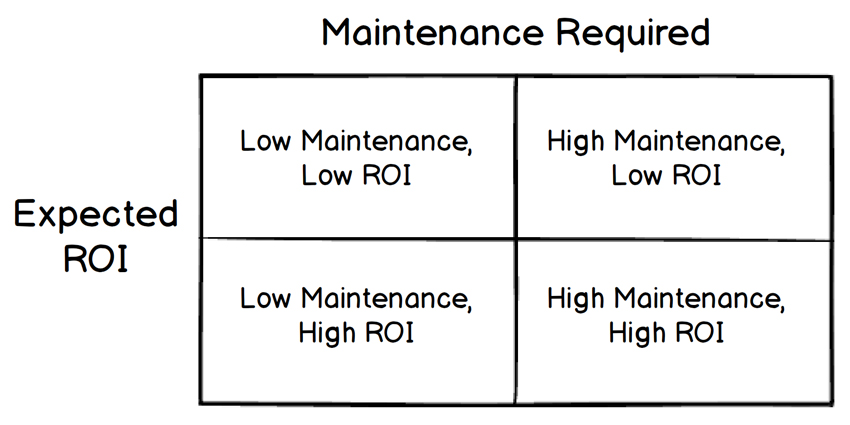
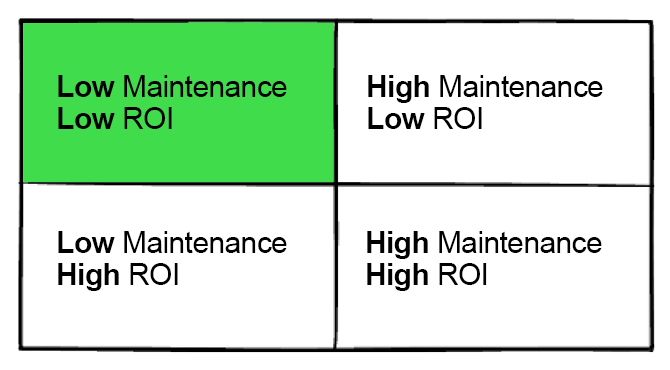
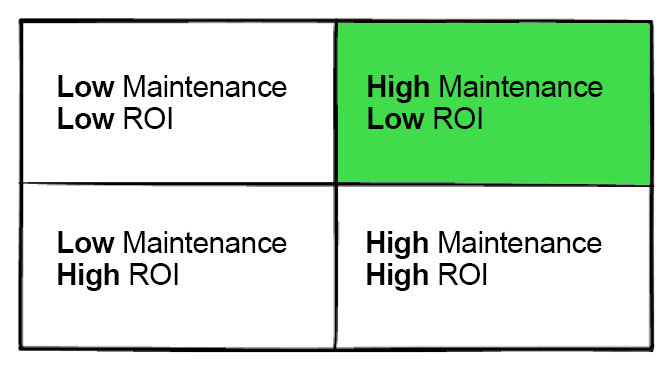
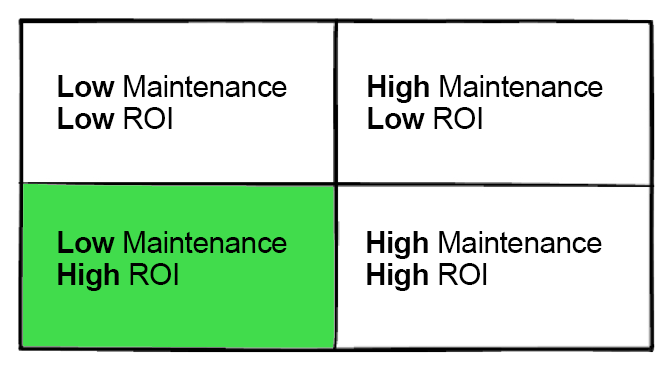
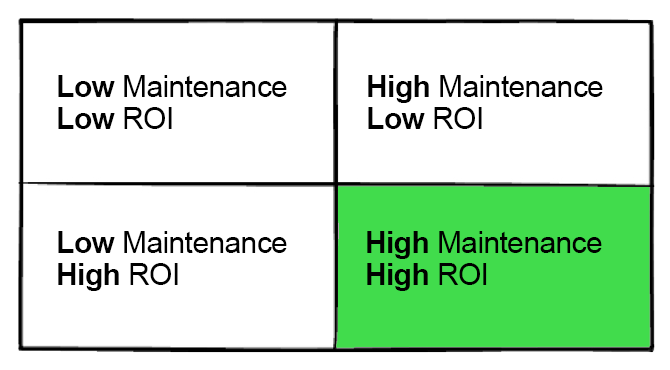
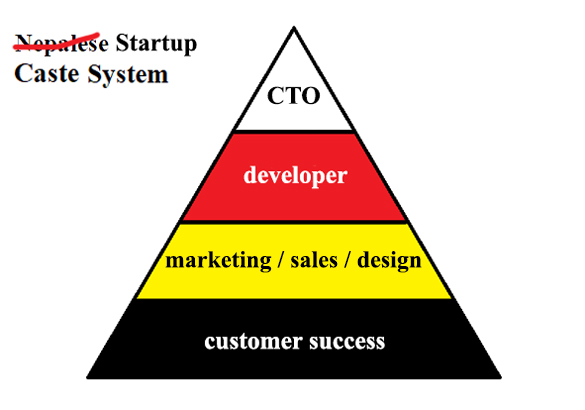




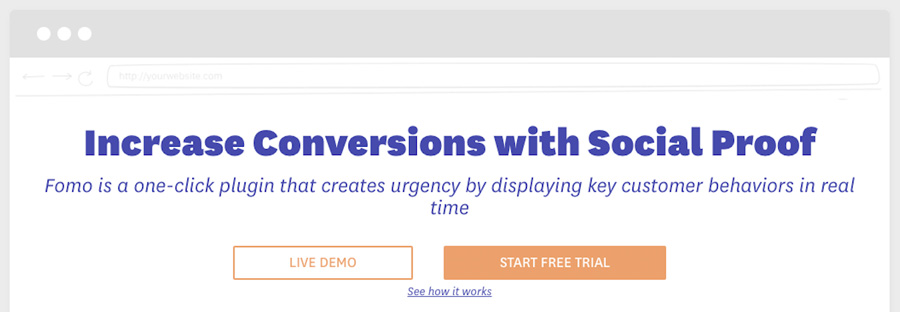
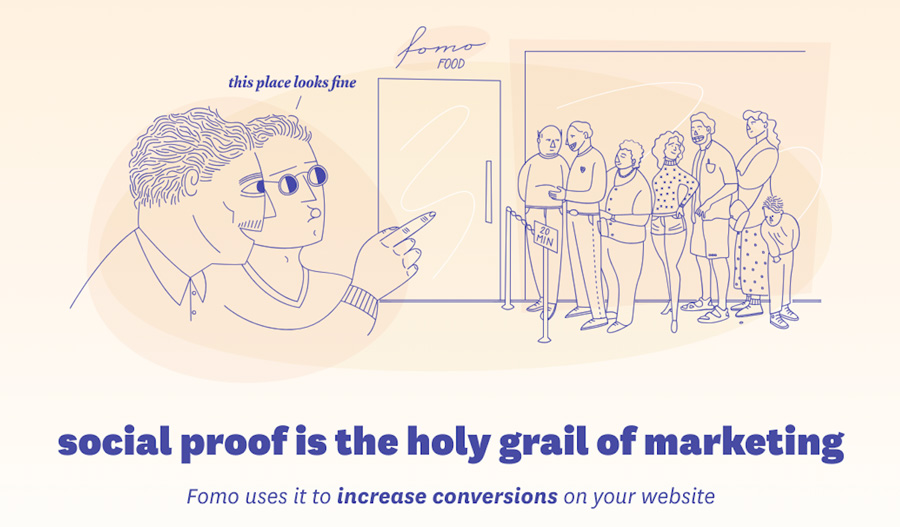
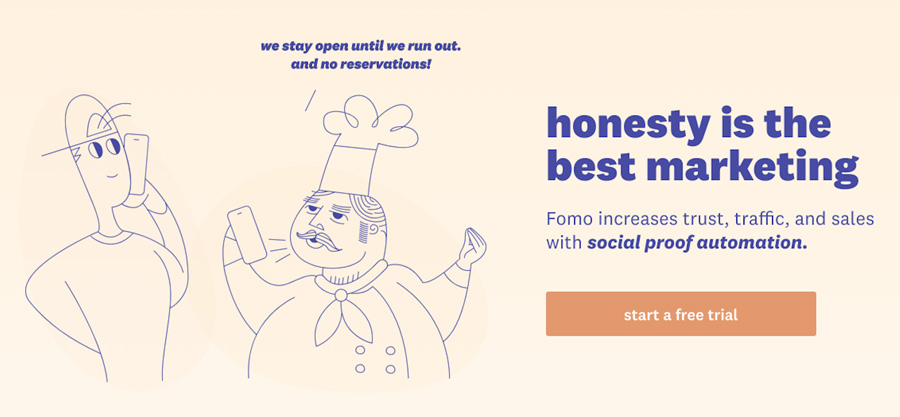








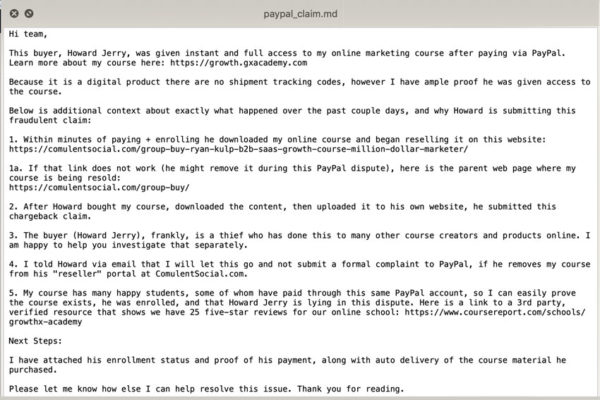




 (@ryanckulp)
(@ryanckulp) 













 (@ryanckulp)
(@ryanckulp) 



 (@SanjayAtPlay)
(@SanjayAtPlay) 



